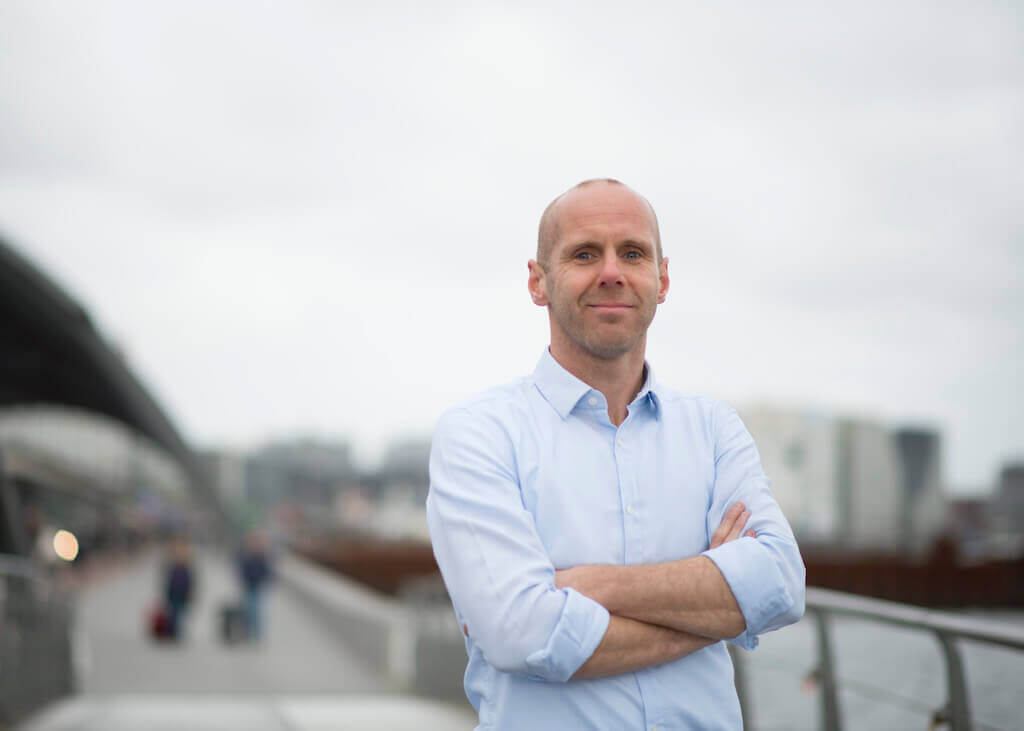Impact investing is a relatively new phenomenon but holds the potential to radically change the entire investment landscape. With a focus on positive social and environmental change in addition to financial returns, impact investing offers investors the chance to make a valuable global contribution while also benefiting their portfolios. Gert Van Veldhuisen is the CEO of BiD Network, an organisation dedicated to tailoring financial solutions for small and medium-sized enterprises with significant growth and social impact potential in East Africa. Tharawat Magazine had a chance to talk with Gert Van Veldhuisen about the recent growth of impact investing and the persistent challenges that keep it from becoming a more significant part of the mainstream investment universe.

Explain to us what impact investing is.
Impact investing is an investment in a business with the goal of both societal and financial returns. The social impact must be by design and not simply by default. It’s not philanthropy. Impact investing is not about making an impact through a project without any financial returns; on the contrary, it is focused on a business and a goal of growth and self-sustainability while making impacts along the way. The concept isn’t very old, and I hadn’t even heard of the term until 2013 when someone told me my investment strategy was the same as impact investing. Impact investment started out very niche around 2007, with limited focus, but it has grown and developed to where now there is interest from every kind of asset class. Even the large venture capital funds are now stepping in and driving it more mainstream, which is where I believe it belongs.
Entrepreneurial ventures have all kinds of lifecycles that require different types of capital at different stages of development. How does this play out in the impact investment sector?

In East Africa, most impact investments are still in their early stages. However, there are already companies such as Jibu (water), M-Pesa (mobile money) or d.light (solar energy) who are looking into big-ticket development. These companies can grow so fast that, sometimes, they are even looking for 10, 15 or 30 million US dollars for their projects. But impact investing in an off-grid power plant can easily go into hundreds of millions of dollars. The larger investors are gradually getting more involved with these higher-cost developments.
Can you give us some recent examples of successful impact investments?
Impact investment is still quite a young sector, and the influx of capital can be more gradual, sometimes taking five or even seven years before the level of investment picks up. Even more importantly, exits can also take five to seven years, so there is not a long track record about successful exits, which provides proof for more conservative “old school” investors.
In the BiD Network, I can give two examples that have been quite successful. In East Africa, there are thousands of motorbike taxis whose operators are very poor but still have to rent their vehicles at exorbitantly high interest rates, hampering their efforts to make a proper living. A company called Tugende started an initiative to provide motorbike drivers with ownership of their own bikes. The goal was to put in place a fair leasing arrangement where operators could work their way out of poverty and eventually own their bikes. Over the past six or seven years, the company has leased more than 13,000 motorbikes, and already over 4,000 have been fully paid back by their operators. What often happens now is that motorbike drivers become entrepreneurs themselves – they buy their own motorbike after 18 months and then apply for a new leasing scheme to get another motorbike. They can even start their own business and establish a credit rating, which gives them access to bank loans and makes them self-sufficient. The project has been very successful, and it is expanding at a rapid pace. The company has just raised 5 or 6 million dollars and is ready for another round of funding because they can’t keep up with the drivers’ demand.
Another success story I invested in myself in 2011 is Nazava, a company that provides clean drinking water in Indonesia through simple household purification systems. It’s a manual setup, requiring no electricity nor the boiling of water. The company is currently providing drinking water for around half a million people who earn less than 7 dollars a day. I’m also very proud that this company has been able to provide thousands of water purification systems within days of natural disasters that have made access to certain areas very challenging for non-governmental organisations in the region. For me, that is impact investing: a financially sound company with very rapid growth and, at the same time, contributing positive change to the world.

Is it true that impact investing means giving up returns on taking higher risks?
I recently spoke to a very well-respected investment manager whose research indicated that social impact investments from venture capital only have a failure rate of 15 to 20 per cent in a span of five years. Normally, within the area of venture capital investment, the failure rate can be as high as 60 to 80 per cent in five years. That is a remarkable difference. Although it’s not easy to pinpoint the exact reasons behind it, I can imagine that impact investment capital is more patient, with less demand for quick profits and benefitting from staying in companies longer. Entrepreneurs perhaps also tend to be more dedicated, not solely driven by financial returns but also focused on making a difference, which motivates them to stay committed longer. In my opinion, it’s not necessarily true that there is less financial return on impact investments.
How viable or useful are the established 17 Sustainable Development Goals and targets as a metric for social impact?
Since the 17 SDGs have been introduced and universally embraced, they have become more accepted as a measurement indicator of social impact. It has helped those in the sector to communicate more effectively, and it ensures that we’re all talking about the same objectives in the same way. It’s made for much more consistency. I also see the SDGs being used to help organisations focus their investments by targeting a specific development goal. The challenges are in the assessment process. There is a lot of monitoring and evaluation involved, which requires time and discipline. If you want to perform well, you need very clear agreements with the entrepreneurs or measurable targets approved by the stakeholders to deliver the desired outcomes.
[ms-protect-content id=”4069,4129″]
If impact investment generates beneficial social or environmental impact as well as a financial return, why isn’t everybody impact investing?
A sector as young as impact investing has to prove itself before it can become mainstream. It will take many examples of asset success or social impact success to make the sector attractive to conventional investors. But we’re already seeing investment funds that aren’t usually involved in social impact now entering the market – they see impact investing as an interesting way to raise new funding. Another opportunity for impact investing to gain momentum could come as a result of interest rates dropping. In Europe, and especially Holland, we saw a dramatic increase in crowdfunding in response to the falling interest rates offered by the banking industry. It made a lot of investors decide to give social investing a try, and the sector benefited.
What do you see for the future of the impact investment sector?
I may be optimistic, but I do think that impact investing will move into the mainstream. Hopefully, it will become so mainstream that it doesn’t necessarily have to be called impact investing anymore. We can’t keep investing in entrepreneurs or companies that do not contribute to a better world. We have to think about future generations as well. There is a very old native American saying that states, “We don’t inherit the earth from our ancestors; we borrow it from our children.” I think the awareness has grown to the point where we’re all starting to realise it’s not enough to support social efforts merely in our own lives; we have to support them in our investments, attitudes and choices. I’m confident that we’re only a few years away from that way of thinking becoming the norm. I also feel the same way about Africa. The region is rapidly growing in terms of infrastructure, technology and favourable corporate governance. These factors are encouraging investment and, I believe, leading to even greater success for African entrepreneurs. We don’t read much about this in the news, but the continent is full of high-quality entrepreneurial potential that has to be taken seriously and deserves a fair chance.
[/ms-protect-content]














